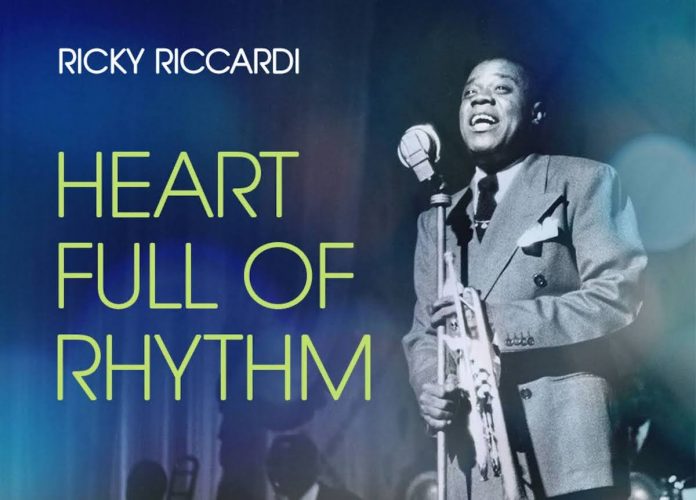
Do you have a favourite Armstrong story from these middle years?
There’s almost too many to choose from but the first one that jumps out is Louis, one day after being arrested in Memphis [for possession of marijuana], dedicating I’ll Be Glad When You’re Dead You Rascal You to the Memphis chief of police! I also try to use Armstrong’s words as often as possible. So anytime he’s in the lead, such as his telling the story of his split with Johnny Collins, I’m riveted. Also, don’t miss Ray Nance’s profane description of seeing Louis live in 1931 – the excitement jumps off the page and is one of my favourite passages in the book. [The Nance story appears at the end of this interview.]
What’s on display at the Armstrong House Museum?
The actual museum is the historic house Louis and Lucille lived at from 1943 until the end of their lives. No one has lived there since the Armstrongs and everything is 100% original. Thus, when people visit, it’s like going through a time portal into another era. Many visitors have told us that they still feel Louis and Lucille’s spirit; it almost feels like they just stepped out for an hour while you take the tour. There are paintings (including one by Tony Bennett), artifacts from Louis’s travels, one of his trumpets is on display in our exhibit area and we even play excerpts of Louis’s voice from his private tapes, which can be quite an emotional experience for visitors.
Can you say something about the trumpet King George V gifted to Armstrong?
How would our lives be different had there been no Louis Armstrong? ‘Well, for one thing, we might not be having this conversation for Jazz Journal. I don’t know, maybe Polka Journal or Fox Trot Journal or something else, but I don’t think jazz and popular music would have evolved in quite the same way’
Louis began playing Selmer trumpets in July 1932 in London. In July 1934, he was back in the United Kingdom and received a gold-plated Selmer, a gift of King George V, with the inscription, “Property of Louis Armstrong”. Armstrong loved it and played it for several years; it’s in many of his mid-1930s publicity photos. But one day, Lyman Vunk, of the Charlie Barnet band, simply complimented Armstrong on the horn while backstage. Armstrong smiled and said “Do you want it? I need to get a new one anyway.” And just like that, he gave away the King George trumpet! It became Vunk’s prized possession but when he passed away in 1997, he left it to the Louis Armstrong House Museum. His widow met our director, Michael Cogswell, at the subway station and handed him the trumpet – in a brown paper bag. It’s still the one on display to all who visit the Armstrong House today.
How would our lives be different had there been no Louis Armstrong?
Well, for one thing, we might not be having this conversation for Jazz Journal. I don’t know, maybe Polka Journal or Fox Trot Journal or something else, but I don’t think jazz and popular music would have evolved in quite the same way. Of course, there were other great musicians like King Oliver and Freddie Keppard and Sidney Bechet and Jelly Roll Morton but they weren’t really known in the mainstream. In the mid-20s, many music writers thought jazz arrived with Rhapsody In Blue and Paul Whiteman was crowned “King” and that was that, the music had matured and evolved. And then Armstrong breaks through and turns everything on its head, teaching people how to solo, how to improvise, how to sing, how to scat, how to swing, how to talk, and mostly doing it on the pop songs of the period. Well, nothing’s the same after that and as I point out in the book, it’s not just jazz, but it’s rock ’n’ roll and rhythm and blues and hip-hop and showmanship and comedy and pyrotechnics and slang – all of that can be traced back to Armstrong.
May I ask your birthdate?
September 8, 1980. My first book came out when I was 30 and that coupled with the Armstrong House job made me feel like I had accomplished everything I set out to; I figured anything else that followed would be gravy. Well, this last decade topped anything that I could have conceivably imagined so I’m excited to see what my 40s will bring.
Heart Full Of Rhythm may be purchased in kindle or print editions. For more information, check out Ricky Riccardi’s blog at dippermouth.blogspot.com.
The Ray Nance story:
And he used to play these choruses on “Tiger Rag” and make these hundred high C’s! Had a cat in the wings and he’s counting them, you know? And this motherfucker, when he get to 99, boy, when he get to 99, he’d hit this C, you know, and rattle it [imitates a high note with vibrato], yeee-yeee-yeee-yeee, you know, rattle it, and man, people about to piss on themselves! Me right there with them, man, I’m sitting there thinking, “If this motherfucker don’t make it, boy!” This motherfucker reared back, rolling his eyes and take a breath – and BAM! Hit that note, boy, and the whole motherfucking place – pandemonium, boy! I tell you, that was the greatest thrill I ever had in my whole life. In fact, it’s one of the greatest thrills that I’ve ever witnessed. (1)
(1) Jack Bradley, “A Symposium on Louis Armstrong,” Saturday Review, July 4, 1970. This quote comes from the cassette containing the entire original, unedited interview, Jack Bradley Collection, 2005.1.2184, Louis Armstrong House Museum.















